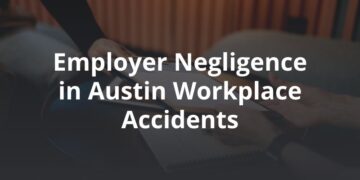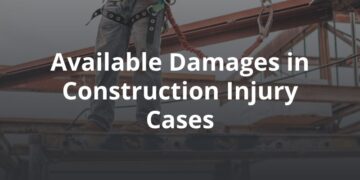Austin is consistently ranked as one of the country’s best places to live, but this year alone over 811 years of life have been lost to traffic accidents, some of which involve large trucks. While Austin ranks lower than other major Texas cities when it comes to 18-wheeler accidents, the impact of these accidents is no less devastating. As far as major Texas cities go, some might say Austin is a place unlike any other — except when it comes to accidents involving 18-wheeler trucks.
How Common Are 18-Wheeler Accidents in Austin and the Surrounding Area?
Not all large truck accidents result in injury, but the more large trucks on the road, the higher the risk of being involved in a serious crash. In 2018, Travis County had 119 total fatalities from crashes on its roadways. Not even halfway through 2021, Austin already has seen over 30 traffic fatalities.
It’s not necessarily Austin itself — or its residents — that creates the dangerous conditions on Travis County roadways. A number of factors come together to create a perfect storm of conditions that can have devastating consequences, especially on the drivers of smaller vehicles. While the city has continued to take measures to improve safety conditions for drivers and pedestrians on the road, Go Safe Labs found that, with 16,635 accidents in 2019, Austin ranked fifth in the country.
Why are crashes so common in Austin and its surrounding areas? In some respects, it just comes with the territory. In 2019 in Texas,
- 1 person was killed every 2 hours.
- 1 person was injured every 2 minutes.
- 1 reportable crash happened every 56 seconds.
Texas also has the unwelcome distinction of leading the country in the number of commercial vehicle accidents. According to the most recent comprehensive report from the Texas Department of Transportation, which presents crash data from 2018, Texas semi trucks were involved in:
- 468 fatal crashes
- 788 suspected serious injury crashes
- 2,535 non-capacitating injury crashes
- 3,412 possible injury crashes
- 18,984 non-injury crashes
- 287 unknown injury crashes
In all, 26,474 18-wheelers were involved in crashes on Texas roads in 2018. As a large state with a network of interstates and highways spanning in all directions, including the I-35 corridor, Texas is an unfortunate hotspot for crashes in addition to being a commercial hub, especially when it comes to oil and gas production. And large trucks move the largest share of all commercial freight.
When you combine the large number of 18-wheeler trucks on the road with snarling traffic and a number of highway interchanges, it’s easy to see why Austin 18-wheeler accidents are unfortunately more common than anyone would like.
What Are My Legal Options If I’ve Been in an Accident with an 18-Wheeler?
When you’ve been involved in an accident with an 18-wheeler, your focus is likely on getting your life back — contacting a lawyer may not even be on your mind. Not everyone involved in a crash has a legal claim, but contacting an injury lawyer can be the first step in making sure you know how to advocate for yourself, whether you ever sue or not.
You will want to make sure that you are seeking any medical care you need, communicating with insurance companies in a way that protects your rights, and documenting the process in case you do need to file suit or negotiate with the insurance company. Reaching out to an attorney in Austin can provide you with the educational tools you need to seek local support.
How Do Settlements Differ for 18-Wheeler Accidents?
Drivers of personal vehicles are required to have only $30,000 liability coverage in the state of Texas. When you are involved in a crash with another driver who is not commercially insured, that is quite often the maximum amount the insurance company will pay unless their policy covers more. Even if you have the legal right to sue for more, there may not be a reasonable way for you to ever recover the cost of damages from an individual who simply does not have the funds.
However, 18-wheelers operate commercially, which means there are some additional potential factors to consider:
- Higher insurance requirements (at least 15 times more than personal liability)
- Negligent hiring or training practices on the part of the carrier company
- Vehicle or driver not meeting the minimum standards required by federal or state regulations
When drivers or companies engage in negligent or intentionally bad behaviors to turn a profit — at the expense of the public’s safety — juries tend to want to send a message to others who would consider doing the same. Whether it’s slacking on vehicle maintenance and driver training or turning a blind eye to substance use in drivers who want to drive more and earn more, companies that endanger others may be on the hook for far more than the minimum insurance payout.
How Can an 18-Wheeler Accident Attorney Near Me Help?
The first responsibility of any truck accident lawyer you reach out to following an 18-wheeler accident is to educate you about your rights and possible next steps. Injury attorneys can point you in the right direction for information about your medical bills, lost income, and legal implications of your case.
As more people return to work and school, and begin to travel to see family only visited virtually for over a year, the number of passenger vehicles on the road continues to increase. Traffic declined dramatically during the early months of the COVID-19 pandemic, but stay-at-home orders led to an increase in large trucks on the road.
The pandemic has also led to the Federal Motor Carrier Safety Administration’s (FMCSA) removal of the hours of service regulations for certain loads hauled by 18-wheeler drivers, which means the potential for an increase in fatigued driving or other dangerous contributing factors that make already risky roads more dangerous when it comes to 18-wheeler accidents in Austin. However, that doesn’t mean drivers have the freedom to put others at risk.
FVF Law has the resources and experience to investigate the details of your crash and determine if working with our firm will add substantial value to your case. Contact us today to schedule your free consultation.







